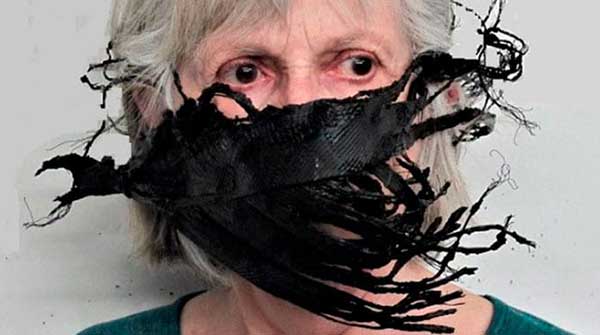Fortunately, most provincial governments and the feds are pushing back against the idea
 Several recent polls have indicated that a majority of Canadians wouldn’t be opposed to returning to mandatory face masking in public places.
Several recent polls have indicated that a majority of Canadians wouldn’t be opposed to returning to mandatory face masking in public places.
A Nanos Research survey conducted between Oct. 30 and Nov. 4 found that 52 percent of Canadian respondents would support this mandate, while 17 percent would “somewhat support” it. This was surprisingly high, even to people who are enthusiastic about the idea.
In contrast, a poll conducted in Ontario by Forum Research on Nov. 8 revealed that 53 percent of respondents either “strongly agree” (26 percent) or “somewhat agree” (27 percent) with a return to mandatory face masking. A total of 47 percent said they “somewhat disagree” (16 percent) or “strongly disagree” (31 percent) with this strategy.
 |
| Related Stories |
| To mask or not to mask?
|
| Forcing kids to wear masks in school again is a bad idea
|
| Time to unmask the truth about wearing masks |
Most provincial governments are either avoiding the issue, pushing back against it in certain ways (including Alberta Premier Danielle Smith’s banning of mask mandates in provincial schools), or leaving it up to personal choice. The federal government has also stayed out of this debate, for the most part.
I can’t blame them.
It would be a foolish decision for our political leaders to return to a restrictive atmosphere with masks after the frustrations that many Canadians felt when their freedom was taken away from them. They would blame their respective governments for returning to mandatory masking and hold it against them in upcoming and impending elections. That’s a scenario most political parties would prefer to avoid.
Average Canadians don’t trust their political leaders and medical advisers the same way they did at the beginning of this pandemic, either. A reversal of masking policies would surely make them more despised than ever before.
Canada was also one of the last countries in the world, along with Communist China, to remove restrictive COVID-19 policies for travel. That’s nothing to be particularly proud of. It would also discourage international travellers and hurt our travel industry if we brought back mandatory masking policies. Considering the financial woes our country has faced during this pandemic, with a looming recession in 2023 that could badly hurt or possibly cripple our economy, this wouldn’t make a lick of sense.
With many COVID-19 vaccines on the market and booster shots widely available in Canada, there’s not as much justification for returning to square one. Spikes in the number of positive cases during the cold winter months are inevitable. History has shown that COVID-19-like and influenza viruses, with the notable exception of the Spanish flu, have thrived in harsh winter weather. It’s something we’re going to have to get used to for the foreseeable future.
What about vaccine hesitancy?
“Vaccine refusal and skepticism is not going away. It cannot be ‘eliminated,’” Kevin Bardosh, a medical anthropologist with the University of Washington’s School of Public Health and the UK’s Edinburgh Medical School, wrote in a Nov. 24 commentary for the Macdonald-Laurier Institute. “We urgently need a more nuanced public discussion based on liberal and democratic values. The arguments put forward by the first anti-vaccination movement, which emerged with mandatory smallpox vaccination in 1853 in Britain, are the same we face today: concerns about individual liberty, fears that risks exceed benefits, resistance to the perceived arrogance and over-reach of biomedical and state authorities, and discrimination towards lower income social groups. They also led, as they have today, to political confrontation, as with the Montreal Vaccine Riot of 1885.”
This is a logical, rational analysis. It’s also far more realistic than what some Canadians suggested during the height of the pandemic: restricting access to grocery stores, restaurants, movie theatres, office spaces and all other public spaces to vaccine refusers and skeptics from now until eternity. Not only was this a ridiculous statement that would never materialize in a free society, but it was also both undemocratic and totalitarian in nature.
Long story short, our federal and provincial governments need to avoid the mandatory masking debate. The final decision should be left up to individuals to wear or not wear a face mask in public places. It’s also up to private businesses to determine their own individual customer policies when it comes to masking.
For the record, I’m fully vaccinated and had my booster shots. I also wore a face mask from the day it became mandatory to the day the rules were relaxed. I didn’t particularly like doing it, but I respected and followed this temporary law. I always assumed Canada’s face mask mandate would be removed, too.
But when it comes to the possibility of returning to mandatory face masking in Canada, you can put me down as “strongly disagree.”
Michael Taube, a Troy Media syndicated columnist and political commentator, was a speechwriter for former Prime Minister Stephen Harper. He holds a master’s degree in comparative politics from the London School of Economics.
For interview requests, click here.
The opinions expressed by our columnists and contributors are theirs alone and do not inherently or expressly reflect the views of our publication.
© Troy Media
Troy Media is an editorial content provider to media outlets and its own hosted community news outlets across Canada.

